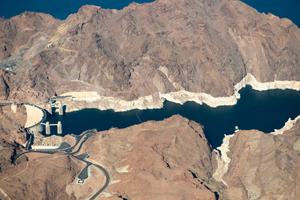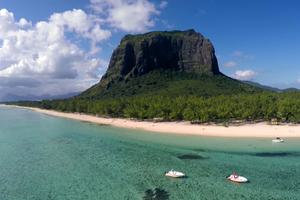In Cities
Population
-
CRISIS ON THE COLORADO: PART IV
In Era of Drought, Phoenix Prepares for a Future Without Colorado River Water
-
Crisis on the Colorado: Part II
On the Water-Starved Colorado River, Drought Is the New Normal
-
Crisis on the Colorado: Part I
The West’s Great River Hits Its Limits: Will the Colorado Run Dry?
-
E360 VIDEO CONTEST WINNER - THIRD PLACE
Off the African Coast, a Struggle to Revive a Battered Fishery
-
Population Boom
Cooling a Warming Planet: A Global Air Conditioning Surge
-
As Alberta’s Tar Sands Boom, Foes Target Project’s Lifelines
Exploiting North America’s largest oil deposit has destroyed vast stretches of Canada's boreal forest, arousing the ire of those opposed to this massive development of fossil fuels. Now those opponents are battling the Keystone XL pipeline, which would pass through environmentally sensitive Western lands as it moves the oil to market.
-
What’s With the Weather? Is Climate Change to Blame?
One of the thorniest questions facing climate scientists is whether human-induced climate change is leading to more heat waves, floods, and extreme weather events. Now, employing increasingly sophisticated methods of studying weather extremes, climatologists say they are closer to answering that key question.
-
Tracking the Destructive Power of the Pacific Ocean’s Tsunamis
The devastating tsunami in northeastern Japan is only one of many that have battered Japan over the eons. In an interview with Yale Environment 360, tsunami and earthquake expert Lori Dengler describes the historic and paleological record of tsunamis across the Pacific, and what it may mean in the future for Japan and the western United States.
-
Anatomy of a Nuclear Crisis: A Chronology of Fukushima
The world’s worst nuclear reactor mishap in 25 years was caused by a massive natural calamity but compounded by what appear to be surprising mistakes by Japanese engineers. The result has been a fast-moving disaster that has left officials careening from one emergency to the next.
-
Examining the Missteps In Japan’s Nuclear Crisis
A leading U.S. expert on nuclear energy discusses some of the fundamental failures that led to the intensifying nuclear drama in Japan and looks at what might lie in store for nuclear power worldwide.
-
Japan’s Once-Powerful Nuclear Industry is Under Siege
The disaster at the Fukushima-Daiichi nuclear power plant has highlighted the importance of nuclear energy to Japan and the power long wielded by the nuclear sector. But that influence now is sure to wane, to the relief of opponents who have fought for years to check nuclear's rapid growth.
-
U.S. High-Speed Rail: Time to Hop Aboard or Be Left Behind
In recent months, several conservative governors have rejected federal funds to begin constructing high-speed rail lines in their states. But a high-speed rail advocate argues that such ideologically driven actions are folly, as other U.S. states and countries around the world are moving swiftly to embrace a technology that is essential for competitive 21st-century economies.
-
Africa’s Flourishing Niger Delta Threatened by Libya Water Plan
The inland Niger delta of Mali is a unique wetland ecosystem that supports a million farmers, fishermen, and herders and a rich diversity of wildlife. But now, the country’s president and Libyan leader Moammar Gaddafi have begun a major agricultural project that will divert much of the river’s water and put the delta’s future at risk.
-
Threat of Mercury Poisoning Rises With Gold Mining Boom
With high gold prices fueling a global gold rush, millions of people in the developing world are turning to small-scale gold mining. In many countries, including Colombia, miners are putting themselves and those who live nearby at risk by using highly toxic mercury in the refining process.
-
Hungary’s Red Sludge Spill: The Media and the Eco-Disaster
The sludge spill in Hungary dominated world news for days, as horrific images of red-mud rivers appeared nonstop on the Internet, newspaper front pages, and TV screens. Yet other environmental threats — less visible, but potentially more devastating — often go largely unnoticed.
-
A Troubling Decline in the Caribou Herds of the Arctic
Across the Far North, populations of caribou — an indispensable source of food and clothing for indigenous people — are in steep decline. Scientists point to rising temperatures and a resource-development boom as the prime culprits.







